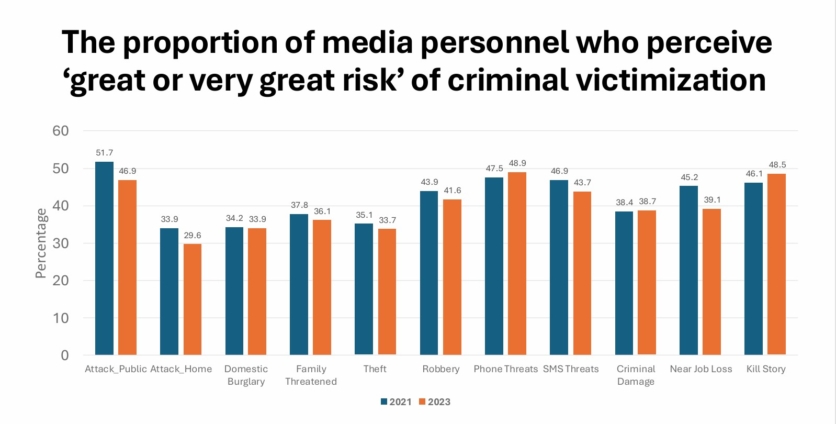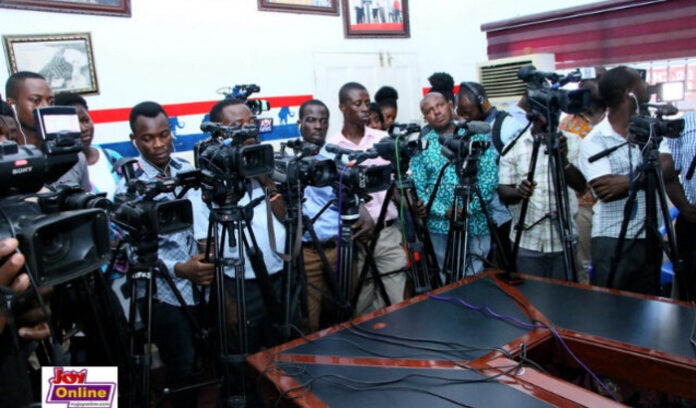A national survey conducted by Professor Justice Tankebe and Dr. Emmanuel Sowatey of the University of Cambridge, UK, has unveiled alarming threats to the safety of media personnel in Ghana.
The findings reveal that journalists and media workers face a broad spectrum of risks, ranging from physical violence to threats targeting their families, creating a climate of fear and uncertainty.
What is grim yet, there is a growing lack of confidence in the police, employers, and the Ghana Journalists Association (GJA) to protect media practitioners.
Key Findings: Widespread Threats and Low Confidence
The survey highlights the multidimensional threats confronting media professionals:
- Prevalence of Threats: Half of the respondents reported receiving threats through phone calls and messages.
- Fear of Victimization: Media workers expressed concerns about physical attacks, unfair dismissals, robberies, and threats while carrying out their duties.
- Unsafe Coverage Topics: Election campaigns, state violence, political corruption, and issues involving traditional authorities are perceived as the riskiest subjects to report on.
- Low Institutional Confidence: Many journalists lack trust in key institutions, such as law enforcement and the judiciary, to safeguard them from attacks or threats.
Policy Recommendations: A Call to Action
To address these challenges, the survey outlines several recommendations aimed at bolstering the safety and security of media personnel:
- Police Protection Measures: The Ghana Police Service should establish a dedicated media safety unit to specifically handle threats against journalists and improve their confidence in law enforcement.
- Legislative Action: The government should enact laws explicitly addressing crimes against media personnel, ensuring their protection is enshrined in the legal framework.
- Judicial Commitment: The judiciary and Attorney General’s Department must demonstrate a firm commitment to prosecuting offences against journalists to deter potential offenders.
- Media Ownership Responsibility: Media owners are urged to foster safer workplaces where journalists can report concerns and demand better working conditions without fear of retaliation.
- Support from the Ghana Journalists Association (GJA): The GJA should provide safety training and legal support to equip media workers with the tools to protect themselves and their rights.
An Urgent Need for Action
The findings underscore the precarious environment in which Ghanaian media personnel operate, particularly during politically sensitive periods or when reporting on controversial topics.
Without swift and decisive action, the fundamental role of the press in promoting democracy and accountability may be further jeopardized.
Professor Tankebe and Dr. Sowatey have called on stakeholders—including the government, police, judiciary, and media organizations—to prioritize the safety of journalists to preserve press freedom and democracy in Ghana.

ALSO READ:
- We must resist the suppression of media freedom – Julius Malema
Media freedom is fuelling media tyranny – Prof Gyampo writes
Below is the survey findings in full:

